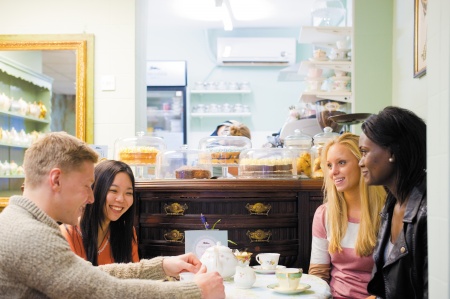
December 12, 2023, by brzms6
Managing your resilience during your job, placement, or further study search
By Katie Bonner, Careers Adviser, Faculty of Science
Autumn term is a flurry of recruitment activity, and the Careers Service has been busy supporting students who are looking for work experience, graduate roles, or further study.
Recruitment processes can be long, with weeks or sometimes months passing between stages. The waiting, alongside unsuccessful applications, can be a drain on our resilience.
What is resilience?
Resilience is the ability to move forward with a positive mindset after a setback or challenge. Different challenges will affect our resilience in lots of ways. You might find you “bounce back” quickly after some constructive feedback, but it takes longer to feel positive again after not being invited to an interview. You might know some people who seem not to let challenges affect them, and some who dwell on the setback.
It’s important to remember that resilience is something we are always working on throughout our lives. There are some ways you can manage your resilience to help you move forward from a disappointment, challenge or set-back. Take a look at our tips below:
Review your “resting” resilience
You can start investing in your resilience before hard times arrive. Start by thinking about your internal support network; your self-esteem, confidence, composure, and willingness to be open with others. How do you talk to yourself about your accomplishments or setbacks? Do you handle challenging situations rationally? Are you able to share your feelings?
You can also think about your external support network such as friends, course mates, tutors, family, team-mates. Who can you go to if you’re facing a challenge? What type of support do they offer?
When you come up against a challenge, talking to a trusted person or a professional (like the Careers team or Wellbeing team) can bring some perspective to the experience.
Reflect on what you’ve done before
While being unsuccessful with your application is disappointing, chances are it’s not the first time you’ve experienced that emotion. If you’re comfortable, think back to a different time you’ve experienced disappointment and reflect on the steps you took to move forward from that setback.
What did you feel? Who did you talk to about it? How did you get through it?
We can use what we’ve learnt from past experiences to help us in the present moment and potentially move forward a little quicker.
Practice a growth mindset
You might not be able to change the circumstances of your setback, but you can change how you think about those setbacks by practicing a growth mindset.
A growth mindset is a way of thinking about our skills, attributes, and knowledge. It embraces the idea that these things can grow and develop over time, rather than just being something we “do” or “don’t” have. The opposite of a growth mindset is a fixed mindset, and we will move between the two mindsets all the time.
For example, you might think “I can’t write a good personal statement, that’s why I’m not getting past the first application stage.” This would be you thinking in a fixed mindset. You see the failure as final and might dwell on that feeling.
To practice a growth mindset you might think, “I can’t write impactful personal statement yet, but I could talk to someone who knows what to do.” This reframes the setback as a new learning opportunity and gives you an action to take, in this case, talking to the Careers and Employability Service.. There’s a great TEDx talk from psychologist Carol Dweck on the power of believing you can improve.
It’s okay to take a break from the cycle
If you’re finding the pace of applications too overwhelming right now, then it is fine to take a break from the cycle and refocus on things that feel good to do. Opportunities will continue to come up, it’s never ‘too late’.
Come and talk to the Careers and Employability Service about your progress, and we can help you look at different options or strategies for your applications. You might find our Career Wellbeing NOOC a helpful resource too.
No comments yet, fill out a comment to be the first

Leave a Reply